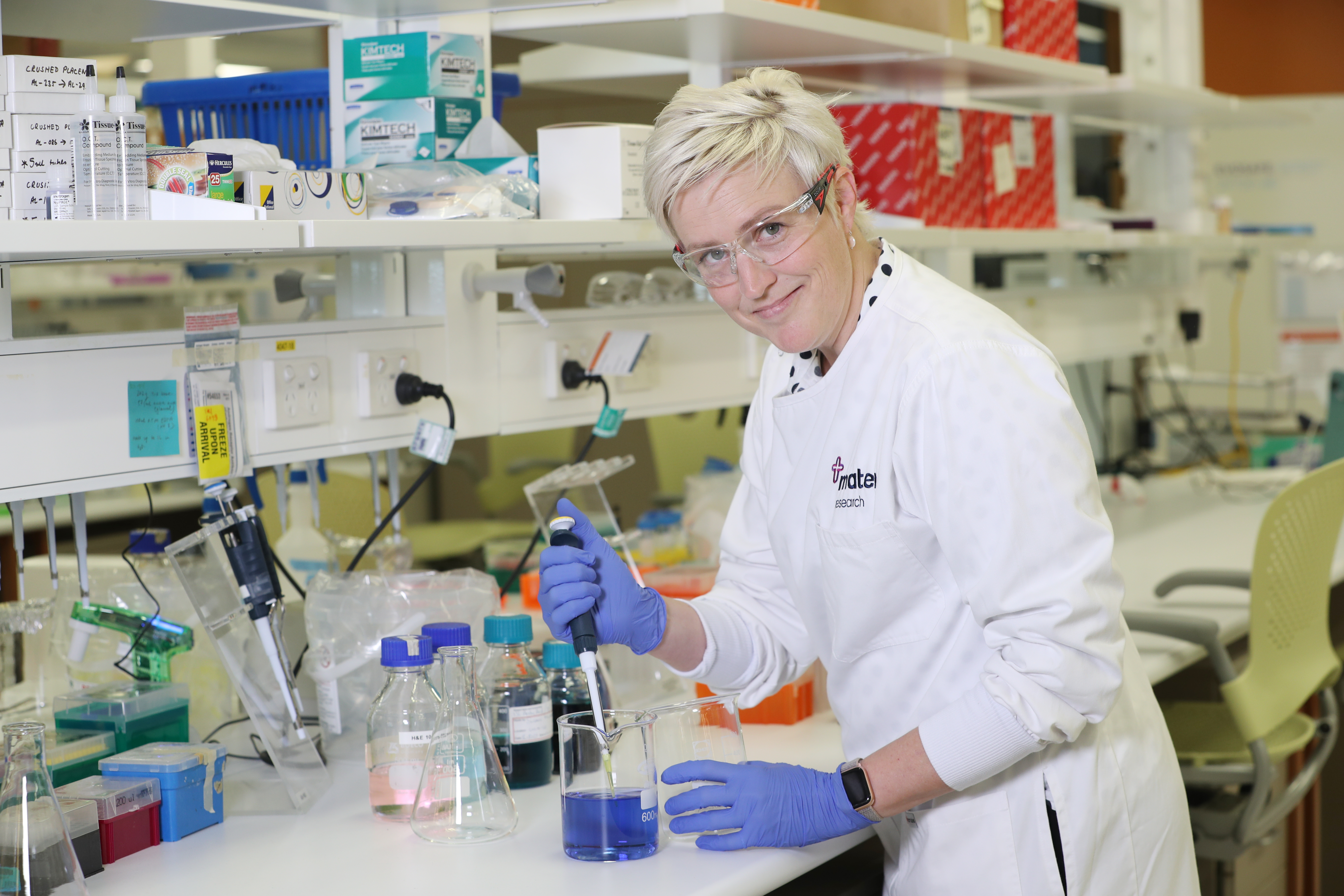You may be surprised to learn that breast cancer isn’t one disease—there are different types and subtypes, which grow at different rates and can be diagnosed at different stages.
No two women are the same and nor are their breast cancer journeys. However, many will find they have one thing in common—that their breast cancer is invasive, with the potential to spread to other areas of the body.
In the lab

Dr Jodi Saunus and her colleagues at Mater Research are homing in on triple-negative breast cancer (TNBC)—an invasive and often aggressive type of breast cancer that tends to occur in women younger than 40, especially those who carry a BRCA1 gene mutation.
The team is investigating changes in breast tissue produced by mutated BRCA1, even before there is any sign of cancer in the breast.
The overall aim of the project is to try and unlock new diagnostics for at-risk patients, and work toward the development of new treatment pathways.
“Because our team spans across breast cancer research, clinical care and bioinformatics, we are in an incredible position to do this work,” Dr Saunus said.
TNBC grows and spreads fast, is more inclined to metastasise, and can be highly resistant to chemotherapy.
As many as 23 percent of these patients die within five years of diagnosis, and most deaths are associated with chemotherapy resistance.
Sadly, there are virtually no alternative treatments with proven efficacy. Yet.
“This innovative project has exciting potential to impact the way TNBC is managed, including the development of new drugs that make tumours more sensitive to chemotherapy,” Dr Saunus said.
Recent advances have revealed that epigenomics—the master controller of our gene expression—could explain why some women are susceptible to TNBC, and why TNBC can be so resistant to chemotherapy.
While scientists have known for decades that the epigenomic ‘master controller’ is defective in cancer cells, it’s only more recently become possible to start amassing and decoding this kind of data, thanks to new ‘single cell sequencing’ technology.
Dr Saunus and her team are doing just that—working with Mater patients to gather and compare different types of breast tissue for the first time, as part of an ambitious project to decode a range of mysteries within this emerging field of science.
The project involves analysing both tumour and non-tumour cell types from breast biopsies to comprehensively map out genome structure and function in each patient.
“Because we will be looking at the epigenomics of human breast samples for the first time, the chances of discovering entirely new information about susceptibility and chemotherapy response are very high.”
Thanks to your support, Mater is at the forefront of this devastating disease, and changing the story for Australian women.









